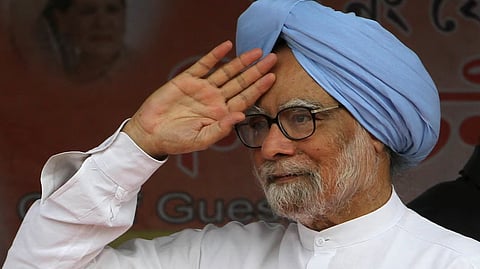

The Right to Education (RTE) Act, 2009, introduced during the tenure of former Prime Minister Dr Manmohan Singh who passed away yesterday, December 26, has been a combination of successes and shortcomings, according to education experts. This was stated in a report by PTI.
Singh's government also introduced the Right to Information (RTI) Act, empowering citizens with access to government-held information.
The RTE Act aimed to provide free and compulsory education to children aged six to fourteen years, making education a fundamental right.
Last week, the Central government notified a significant change in the RTE Act, removing the "no-detention policy" for students in classes 5 and 8.
"RTE is a mixed bag of failures and successes. RTE admissions in unaided private schools is a landmark success in providing education to children belonging to disadvantaged groups and Economically Weaker Sections (EWS) of society, and it has become very popular. Everyone wants to send their ward to private schools under the EWS category," said Ashok Agarwal, a lawyer and education activist.
"The objective of RTE was to bring all school-aged children, including disabled children, into full-time regular schools, but it has utterly failed. Government schools in rural areas have slowly closed down, and student enrolment has declined. Unfortunately, RTE is yet to achieve its constitutional goal of ensuring all children, without exception, attend regular school and receive quality education. It is still a dream for the children of the masses," he added.
Leena Bhattacharya, a former Global Education Monitoring (GEM) fellow at UNESCO, noted that apart from North and Central India, the RTE Act improved the primary school completion rate of low-income children in other regions.
"The result also suggests that low-income children from rural India saw an increase in lower-secondary school completion rates in the post-RTE period," she said.
A report titled Implementation of the Right of Children to Free and Compulsory Education Act, 2009: Where Do We Stand, released by the Right to Education Cell (RTE Cell) and the Council for Social Development (CSD), New Delhi, highlighted significant progress in universal access and enrollment achieved in the first decade of the Act, largely due to the Sarva Shiksha Abhiyan (SSA).
"However, since the enactment of the RTE Act, efforts towards universal access and enrolment have waned. This is evident from the decline of government schools and the rise of private schools, both in number and enrolment, indicating a neglect of government schools. Though there was a temporary shift back to government schools in 2021-22 due to the pandemic, the overall trend favours private education," the report stated.
The Congress-affiliated National Students' Union of India (NSUI) said Singh's legacy lives on through the RTE Act. "As he once said, 'Education is the key to unlocking a nation's potential.' The RTE ensures that every child, regardless of background, has access to quality education, empowering them to shape a brighter tomorrow," it noted in a post on X.
The RTE Act also mandates that a minimum of 25 per cent of seats in all private unaided primary schools be reserved for children belonging to weaker sections and disadvantaged groups (EWS).
Union Education Minister Dharmendra Pradhan, in August, acknowledged the importance of the RTE Act, calling it a "good provision" to ensure 25 per cent reserved seats for underprivileged children. He also urged states such as Punjab, Kerala, Telangana, and West Bengal, which have yet to implement these provisions, to do so.
Pradhan emphasised that while education falls under the concurrent list, school education is primarily managed by state governments. "RTE and NEP both are complementary. Through both of them, it is our duty to ensure that all get education till class 12," he said.
